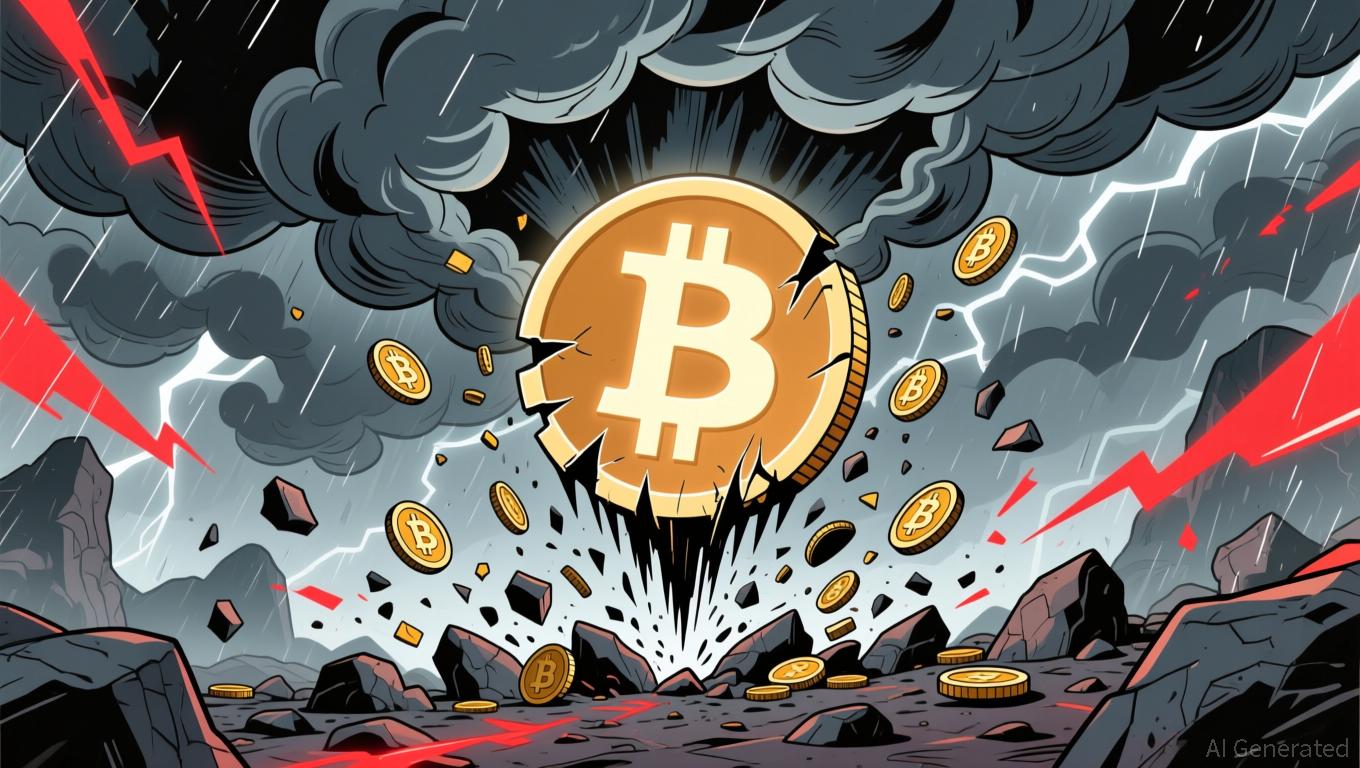U.S. Government Shutdown Hits 38 Days: Crypto Regulation Stalls as CLARITY Act Freezes
-
The 38-day U.S. shutdown freezes agencies, stalls the CLARITY Act, and drains billions from the economy as workers, markets, and crypto await a deal.
-
Crypto regulation hits pause as the SEC and CFTC run skeleton crews, leaving ETF reviews and key bills stuck while uncertainty ripples through markets.
The U.S. government shutdown has now stretched into its 38th day, making it the longest in American history. What started as a budget disagreement has turned into a complete halt of federal operations. Because of this political standoff, major bills have stopped moving in Congress, including the CLARITY Act, a key law that could finally bring clear rules to the crypto industry.
Government Still Locked, Economy Feeling the Pain
The Senate is getting ready to vote on a funding bill that could reopen the government. To pass, both Republicans and Democrats need to agree. The issue holding everything up isn’t crypto or spending, it’s healthcare. Democrats want to extend tax credits that help millions of people afford health insurance. Republicans want to reopen the government first, then discuss healthcare later.
As a result of this shutdown, about 1.4 million federal workers are caught in the middle, and nearly half a million aren’t getting paid. Many have already missed paychecks, causing financial stress. Government services are slowing down, airports are short-staffed, and federal agencies have paused important work.
Having said that, even food assistance programs are also affected. A court recently ordered the government to fully fund SNAP, a program that helps 42 million Americans buy groceries, after payments were reduced. The government appealed the decision, saying Congress must approve funding.
Economists say the shutdown is damaging the economy. Every week the government stays closed, the U.S. loses $10–$30 billion. Growth could drop by up to 2%, and small businesses relying on government funds are running out of cash.
Crypto Regulation Frozen in Place
The shutdown isn’t just affecting workers, it has brought crypto progress to a standstill. Agencies like the SEC and CFTC are operating with minimal staff. This means reviews for crypto ETF applications are paused, delaying decisions that investors have been waiting for.
The CLARITY Act, a bipartisan bill that would finally define how crypto and stablecoins are regulated, was on track to move forward. Senators involved in the bill said discussions were happening daily, and that a vote could happen before Thanksgiving. Coinbase CEO Brian Armstrong even said that nearly 90% of the bill had already been worked out.
But with the government shut down, nothing can move. Washington is frozen, and so is progress on crypto.
Crypto Market Starts Feeling the Impact
The shutdown is also affecting the markets. With government agencies unable to release funds, liquidity is tightening, and investors are becoming cautious. Bitcoin has pulled back from recent highs as uncertainty increases. Prediction platforms reflect the same mood. According to Polymarket traders, there is nearly a 60% chance that the shutdown will continue beyond November 16.
Analyst Tyler highlights the irony that while everything in D.C. feels frozen, the discussions around digital assets and crypto policy are the only things still progressing.
Disclaimer: The content of this article solely reflects the author's opinion and does not represent the platform in any capacity. This article is not intended to serve as a reference for making investment decisions.
You may also like
Bitcoin News Today: Bitcoin Drops to $90K—Is This a Prime Buying Chance or the Start of a Deeper Downturn?
- Bitcoin fell below $90,000, pushing 70% of active capital into losses and erasing $120B in market value. - Short-term holders face >30% drawdowns, with fear metrics hitting 2-year lows as $1.9B in leveraged positions liquidated. - Analysts cite historical rebounds after extreme fear, but MicroStrategy's leveraged holdings risk further selling if prices drop. - Institutional actions and Fed policy uncertainty remain key factors, though oversold indicators suggest potential 40% near-term rebound.

Coast Guard Strengthens Prohibition of Hate Symbols to Combat Antisemitism and Extremist Activity
- U.S. Coast Guard reversed a policy to reclassify hate symbols like swastikas and nooses from "potentially divisive" to prohibited, following backlash from lawmakers and advocacy groups over antisemitism risks. - The reversal came after a leaked draft proposal aligned with Trump-era Pentagon directives, which critics argued weakened harassment definitions and accountability for hate incidents. - Coast Guard reaffirmed strict prohibitions on divisive symbols, emphasizing severe punishment for violations, b

Bitcoin Updates Today: MicroStrategy Faces a Bitcoin Conundrum: Should They Retain for Future Gains or Liquidate to Stay Afloat?
- MicroStrategy's stock hits 52-week low as Bitcoin dips below $88,000, testing its BTC treasury strategy's viability. - 650,000 BTC holdings now "underwater" at $74k average cost, limiting capital raises and straining liquidity instruments. - Preferred shares (STRD/STRK) fall 30-34% as market demands higher yields, while JPMorgan warns of $8.8B outflow risk from index exclusion. - CEO Saylor claims 80% BTC drop tolerance, but critics fear forced sales could trigger self-fulfilling price declines. - Weak c

XRP News Today: XRP Faces $1.75 Test as Buyers Confront $15M Withdrawals with ETFs on the Horizon
- XRP faces critical $1.75 support zone amid $15.5M outflows and 50% decline from July highs. - TD Sequential buy signals and ETF launches (Nov 18) could trigger rebounds or stabilize price. - Key resistance at $2.150 threatens bearish trend if $1.75 support fails to hold. - Market volatility highlights ETFs' potential to shift institutional adoption and price dynamics.
